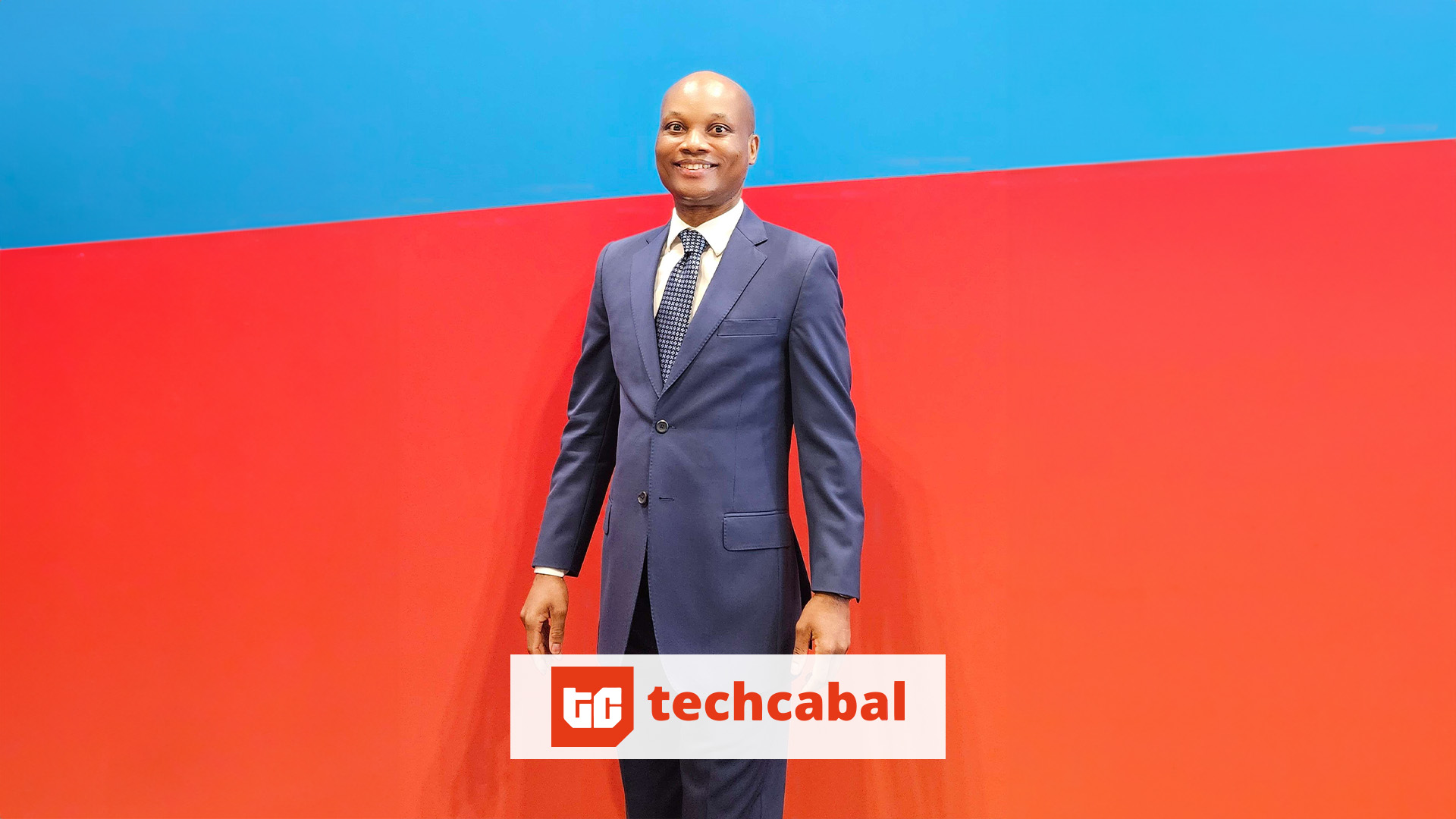Noel K. Tshiani, founder of Congo Business Network, speaks with Christian Kamwina, founder of Ndonge, in this exclusive interview for TechCabal about his debut into the startup space in Kinshasa.
Tell us about your professional background and what excites you most about your career right now.
I am a 30 year-old Congolese entrepreneur working in the digital technology sector. I started my primary studies in the city of Kinshasa (where I was born), notably at Mokili Mwinda school complex, then did my secondary school at Bonsomi College and scientific humanities at Abbé Loya College where I obtained my high school diploma.
Just after obtaining my degree, I joined medical school at the Protestant University in Congo, where I completed my training in the third year of my doctorate. It was during my academic training in 2019 that I started the project Ndonge which will become the startup I am currently leading. Ndonge means termite in Lingala and it is a platform that brings together actors who are in the distribution of telephone credits in the Democratic Republic of Congo. Our platform provides services that facilitate financial inclusion and access to telecommunications tools through innovative and affordable technologies to our customers.
What excites me in my career right now is the different sectors that our company can address. Indeed, it is very easy for us to integrate different new technologies and to work on different IT tools without altering our basic service, which will actually be boosted by the expansion of our activities. That’s why I’m still very enthusiastic about developing Ndonge because I know that despite the fact that it currently has over 20,000 users, it is still in its infancy.
Can you tell us the story of how your startup was created? What inspired you to create your company?
As for my adventure in creating Ndonge, it started in March 2013 when, thanks to my mother’s funding, I was able to open a store selling telephone credits. As a medical student, I could not manage sales at the same time as my studies because classes required mandatory attendance every day from morning to evening.
So I had to hire someone to take care of selling, and I had to take care of supplying the telephone credits. Having hired an employee, I had to keep regular accounts and manage the store from a distance in order to ensure continuity on the one hand. And on the other hand, I had to rush during break at the university to go to the supplier to place orders by depositing the money. Sometimes I purchased by borrowing and I had to settle my debts before the supplier’s closing time of 4 pm.
It was therefore a great difficulty to maneuver that every day. In addition, sometimes the supplier forgot to send the telephone credits or made a mistake. So I had to make sure that things were going well at the university, on the supplier side and at the store. And so the difficulties of managing time, accounting, resources (human, material and virtual) and managing the business pushed me to imagine a computer system that brings together all the functionality so that I could manage everything remotely, even if I was in the auditorium following the lectures.
The initial idea was that the software should only be used for my store. It was after having understood that several other store owners selling telephone credits were confronted with the same problems as me that I decided to transform this software into an interactive platform serving anyone wishing to buy telephone credits either for their own communication or to resell to others. This is how Ndonge was born in 2019, thanks to the contribution of Justin Mwanza on the software development side.
What challenges have you faced throughout the launch and growth of your business in Kinshasa? How did you overcome these challenges?
The birth of Ndonge was followed by many difficulties since it was the first platform of its kind in Congo. We had to face several challenges, including the adaptation of our platform to the real needs of our target users. We had to make Ndonge as easy as possible to use, whether it was for ordering telephone credits or for inventory management, in order to avoid a conflict between the traditional system of supplying credits and our new, essentially digital system.
Dealers of telephone credits are very time-sensitive customers. They like a time-efficient system and this was the biggest challenge to overcome. The second challenge was the payment method to be used for the supply. Because the resellers make cash deposits to place their orders, a physical presence was required to pay for the products. Telecommunications networks do not allow for mobile money agents to send money to each other at no cost.
It was therefore difficult for us to convince resellers to use our system without losing money. And the last challenge was and still is that of mobilizing capital to power the service. The distribution of telephone credits is a highly demanded activity in Congo, whether by companies, resellers or end consumers. We, therefore, needed to have sufficient funds to serve our customers. These are the major challenges we have been facing and we are working daily with the sole purpose of making our platform the hub of telephone unit distribution in Congo.
Everything has been progressing well since our launch because we have become more mature in controlling the factors that can lead to loss within the company first, and we have put in place two marketing approaches that are working perfectly well with resellers who are internet savvy and those who prefer to interact with Ndonge via a collection agent.
These approaches are currently allowing us to achieve exponential sales as more resellers join our platform. The challenge of payment methods has been overcome by setting up collectors who collect money from resellers, while other resellers use bank transfers and other payment methods without fees to place orders directly on Ndonge. Mobile money remains the best payment method for the resellers of telephone credits to place orders on our platform from their points of sale because mobile money is part of their business as well as the resale of telephone credits.
How does your company differ from your competitors, especially telecommunications companies such as Airtel, Vodacom or Orange? What unique value proposition do you offer to your customers so that they don’t buy directly from telecommunications companies?
After working in this sector since 2013 on a personal basis and since 2019 as a startup, we have not yet found any structure or company that approaches the notion of distribution of telephone credits in Congo as we do. Therefore, we do not yet have competitors with a business model like ours.
However, we see many partners such as the Regulatory Authority of the Post and Telecommunications, telecommunications companies, distribution of telephone credits, even phone booths and end consumers. In fact, these operators can do their business on our platform without negatively impacting our own business. On the contrary, their presence would be an added value for Ndonge in terms of profitability and expansion.
However, some of the companies that provide telephone credits that we have listed only target one category of customers and that is most often the end consumers. These consumers top up their accounts with phone credits whether they are bank customers, microfinance agencies or mobile money customers. On the other hand, our platform targets all the players in this market while keeping in mind that the majority of the Congolese population is unbanked, does not have a mobile money account and does not go through microfinance agencies.
This means that the largest share of the telephone credits distribution market is held by resellers who serve end consumers in the suburbs. And that’s the market that Ndonge is addressing, that’s our unique value proposition. We are a marketplace and the very first in Congo that specifically targets the distribution of telephone credits for all players. That is, providers, consumers, and regulators.
Do you plan to introduce new products or services into the market in the future, based on the opportunities you currently see in Kinshasa?
In the coming years, we plan to attack other provinces in Congo and expand our platform across the entire African continent. The advantage that Africa has in the supply of telephone credits is that the logic is the same everywhere. This means that the success that Ndonge has achieved in Kinshasa will be the same in any African country where it is established.
Our team is also working on the integration of smart contracts (essential components of blockchain) in order to automate the processes of balance verification, order compliance, payments, and telephone credits delivery. We are also working on the possibility of introducing artificial intelligence as a customer assistant in order to respond to customer concerns 24 hours a day as well as customer identification technology during the KYC (Know Your Customer) process.
We also plan to work with the regulatory authorities such as the Central Bank of Congo and the Ministry of Digital Affairs in the elaboration of texts for the creation of frameworks that promote the emergence of digital and financial technologies such as blockchain, artificial intelligence, metaverse, web 3, gaming, NFTs, social networks, and big data.
Congo and Africa have a very young population. And they are absorbing advanced digital technologies much more easily and quickly. Things are moving so fast that it would be wise to create frameworks that encourage entrepreneurial initiatives by young people rather than stifle them.




















